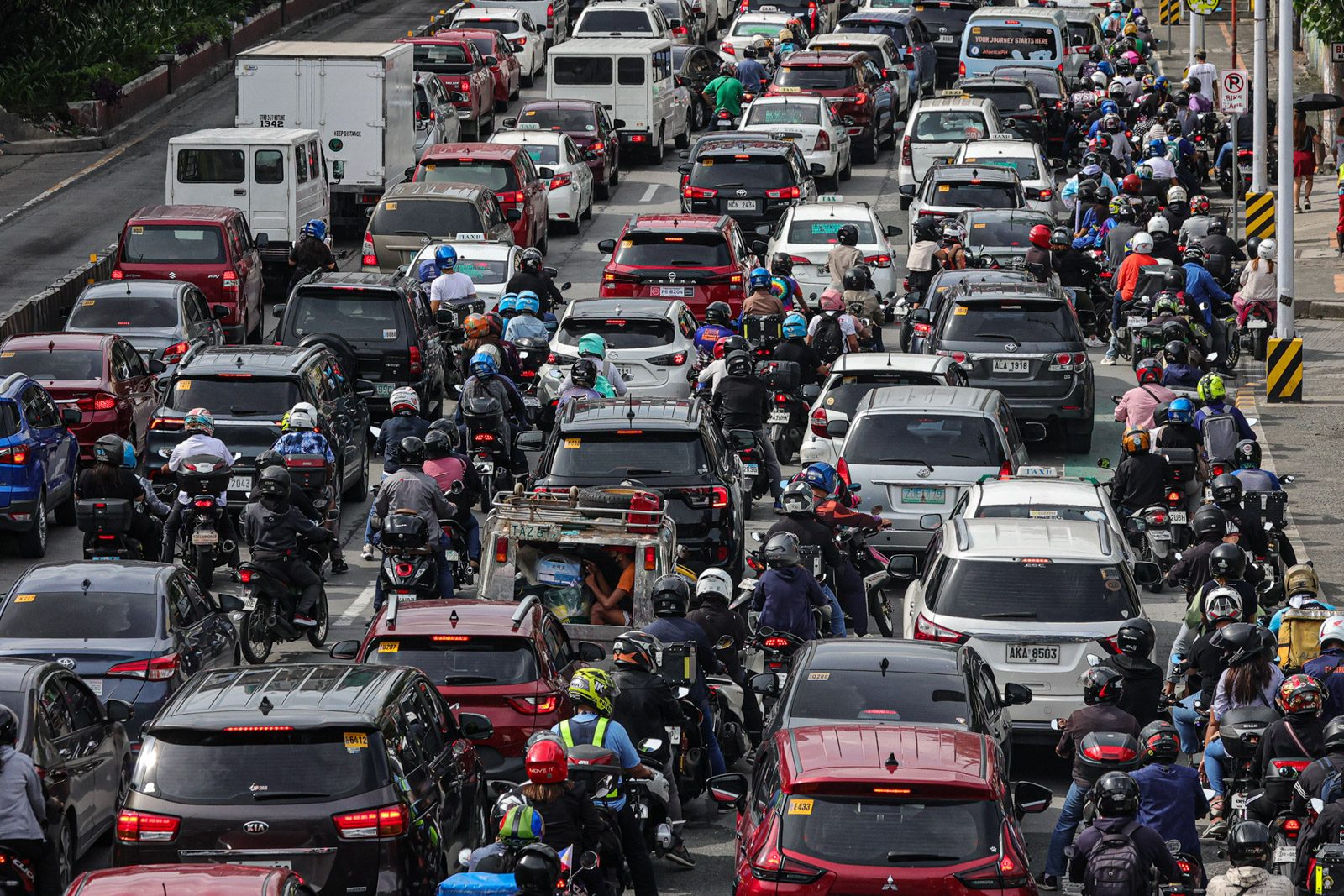SUMMARY
This is AI generated summarization, which may have errors. For context, always refer to the full article.

While workers languish in hours-long commutes and car rides, a private sector advisor of President Ferdinand Marcos Jr. says not to worry; traffic just means there’s plenty of economic activity.
“Of course, you have traffic. I mean, there’s traffic all over the world in areas that the economy is really doing [well],” said Joey Concepcion III, who acts as the President’s private sector lead advisor on the jobs sector.
Concepcion is part of Marcos’ Private Sector Advisory Council, a close-knit circle of billionaires that provide recommendations on infrastructure, agriculture, tourism, health, jobs, and digital infrastructure.
Concepcion was listed as the country’s 41st richest Filipino in 2020, drawing his wealth from his stakes in Concepcion Industrial – local manufacturer of Condura, Carrier, Otis, Kelvinator, among others – and RFM Corporation – the company behind Selecta, Fiesta, and Sunkist.

“When you go to a country, and you see that there’s a lot of people moving – traffic and all of that – that means there’s a lot of economic activity. But if the streets are empty and there’s nobody, that means the economy is not moving,” he said in a One Balita Pilipinas news interview on Wednesday, August 23.
The many problems besetting the Philippines’ transportation system have caused near-unbearable levels of traffic in major urban centers. Metro Manila in particular has been named the most congested city by the Asian Development Bank and the TomTomTraffic Index.
The country’s sprawling megacity is also home to the world’s fifth worst public transportation system, according to think tank Oliver Wyman Forum and the University of California, Berkeley. (READ: On their own: Commuters and the looming transportation crisis in Metro Manila)
Traffic also hurts us economically, costing us as much as P3.5 billion in “lost opportunities” every day, according to a 2018 Japan International Cooperation Agency report. That could reach as high as P5.4 billion daily by 2035.
How does the country’s traffic compare to its neighbors? Concepcion brought up his recent trip to Indonesia, where he saw “the economy really booming because there’s so much mobility.”
Indonesian capital Jakarta is known for its notorious traffic congestion, which contributed to its dangerous levels of air pollution and its disreputable title as the world’s most polluted city. In fact, it’s gotten so terrible that civil servants in the city were asked to work from home on Mondays to help clear up the air and traffic.
Time to move on from WFH?
A few days ago, Concepcion also raised eyebrows after he suggested businesses should bring employees back to the office rather than offer work-from-home arrangements since this would encourage more consumer spending and “discipline” from workers.
“Iyong work-from-home okay lang ‘yan sa pandemic. Pero sa panahon natin ngayon wala naman pandemic. So dapat tuloy-tuloy ang encouragement to work from office para may disciplina rin,” he said during a public briefing on Monday, August 21.
(That work-from-home arrangement, that works during the pandemic. But right now, there’s no more pandemic. So we should keep encouraging a work-from-office arrangement so that there’s also discipline.)
When employees don’t work on-site, they spend less on transportation, clothes, and eating out, Concepcion said.
“If there is no mobility, there will be very weak consumer spending and that will lead to a lower number in our growth of the Philippines,” he added.
The economy grew by a disappointing 4.3% in the second quarter of 2023, the lowest growth in almost 12 years, without counting the pandemic recession.
The presidential advisor’s response to this slow growth? Consumers should spend – and spend plenty.
“How do you spur economic activity? You have to spend,” Concepcion said on Wednesday. “If you don’t spend and nobody spends, then there is no economic activity.”
– Rappler.com
Add a comment
How does this make you feel?
![[ANALYSIS] Wake up: The PH economy is turning sour, lagging behind](https://www.rappler.com/tachyon/2023/08/PH-economy-lagging-behind-August-18-2023.jpg?fit=449%2C449)
![[EDITORIAL] Apat na taon na lang Ginoong Marcos, ‘di na puwede ang papetiks-petiks](https://www.rappler.com/tachyon/2024/07/animated-bongbong-marcos-2024-sona-day-carousel.jpg?resize=257%2C257&crop=280px%2C0px%2C720px%2C720px)
![[In This Economy] Delulunomics: Kailan magiging upper-middle income country ang Pilipinas?](https://www.rappler.com/tachyon/2024/07/in-this-economy-upper-middle-income-country.jpg?resize=257%2C257&crop=421px%2C0px%2C1080px%2C1080px)

![[EDITORIAL] Marcos Year 2: Hilong-talilong](https://www.rappler.com/tachyon/2024/07/animated-bongbong-marcos-2nd-sona-carousel.jpg?resize=257%2C257&crop=136px%2C0px%2C720px%2C720px)
![[Newspoint] A fighting presence](https://www.rappler.com/tachyon/2024/07/thought-leaders-a-fighting-presence.jpg?resize=257%2C257&crop=441px%2C0px%2C1080px%2C1080px)
There are no comments yet. Add your comment to start the conversation.